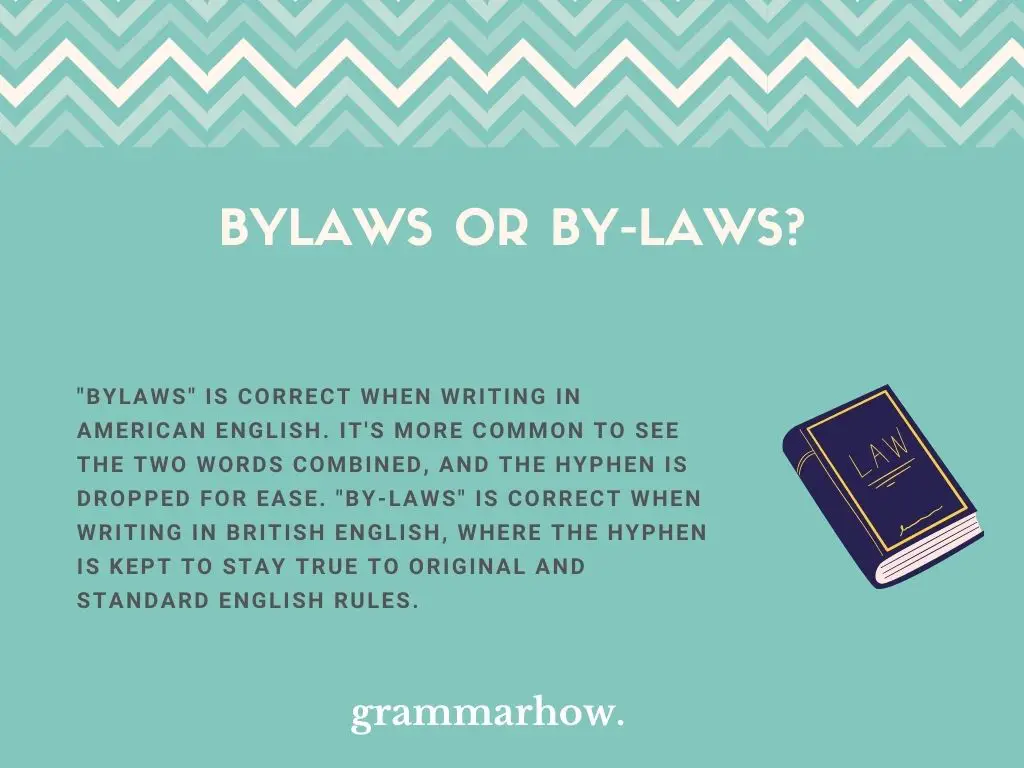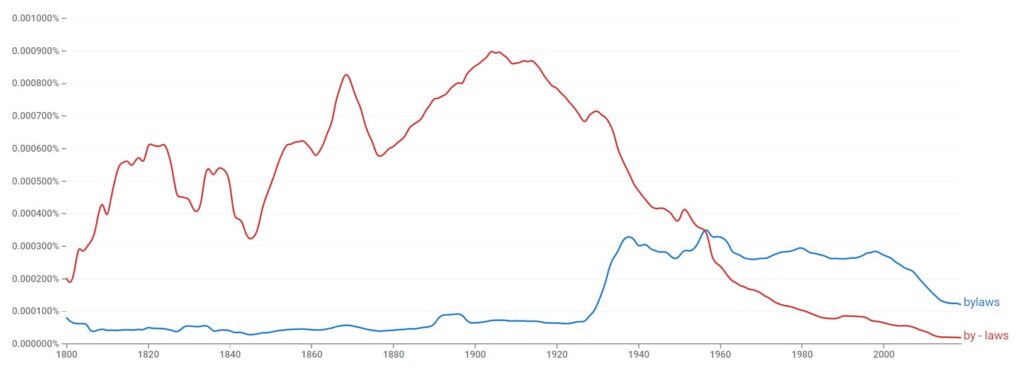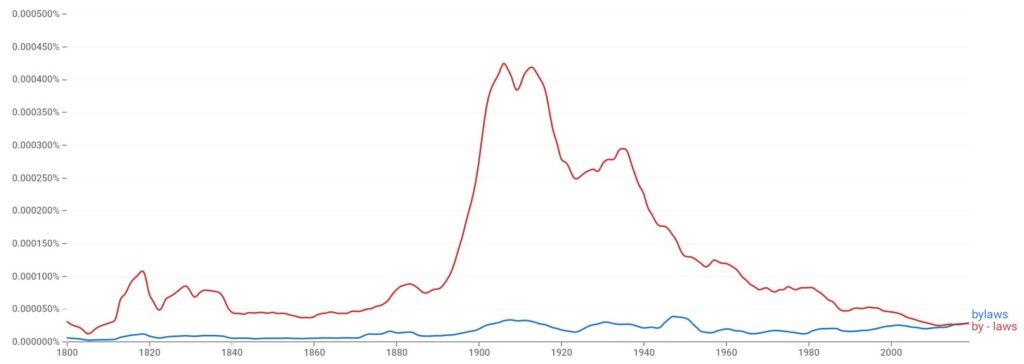
When writing about “bylaws,” it’s going to help a lot to understand the correct form. Can it be written as just one or two words? Or maybe it’s more suitable as a hyphenated form? This article will answer all the questions you might have.
“Bylaws” is correct when writing in American English. It’s more common to see the two words combined, and the hyphen is dropped for ease. “By-laws” is correct when writing in British English, where the hyphen is kept to stay true to original and standard English rules.

According to Google Ngram Viewer, “bylaws” is the most popular choice in American English. It’s not a very popular word in general, which is why neither option is particularly high on the graph. Still, the unhyphenated form is definitely more popular.

According to Google Ngram Viewer, “by-laws” and “bylaws” are about even in British English. This shows that the hyphenated form has more value in British English, but with the ever-increasing pressure of American English rules on the language, “bylaws” has become more popular.

The Oxford Dictionary and The Cambridge Dictionary define “by-law” as the UK variation of the spelling, while “bylaw” is written in both dictionaries as the correct spelling if you are writing according to US English rules.
To investigate which spelling is more popular in American English, we can look at which spelling The New York Times usually uses.
On their website, we can see that “bylaws” is mentioned 18,100 times while “by-laws” is mentioned 3,640 times. These results show that the unhyphenated variation is more popular in American English.
We can also use the same investigative techniques in British English. This time, we will look at which spelling The Daily Mail uses most.
On their website, we can see that “by-laws” is mentioned 550 times while “bylaws” is mentioned 347 times. While neither of these numbers is particularly large, it still shows that both spelling variations are suitable in British English.
“Bylaws” is most commonly recognized as one word when using American English. This is done because American English users like to remove redundancies and keep the language simplistic wherever possible. In the case of “by-laws,” the hyphen is deemed unnecessary.
Here are a couple of examples that might help you to understand more about it:
“By-laws” is more common in British English (even though both spelling variations are recognized there). The hyphen is kept to show that English rules surrounding the hyphens are more standard. AP Style teaches us a lot about them, and British English puts more value on this style.
The AP Stylebook allows us to hyphenate words when they need to be linked to aid the meaning. For example, “by” and “laws” on their own would not equate to the same meaning we’re looking for when we hyphenate the words.
Check these examples out if you’re struggling to understand how it works:
“By-laws” is not a proper noun. We do not need to capitalize either part of it because it is not normal for us to do so. You may find it useful to capitalize both parts of the hyphen when you are using it in a title, though.
If your title style means that you capitalize every other word in it, there is no reason why “by-laws” can’t also be capitalized. It would help to keep your writing more streamlined.
Martin holds a Master’s degree in Finance and International Business. He has six years of experience in professional communication with clients, executives, and colleagues. Furthermore, he has teaching experience from Aarhus University. Martin has been featured as an expert in communication and teaching on Forbes and Shopify. Read more about Martin here.